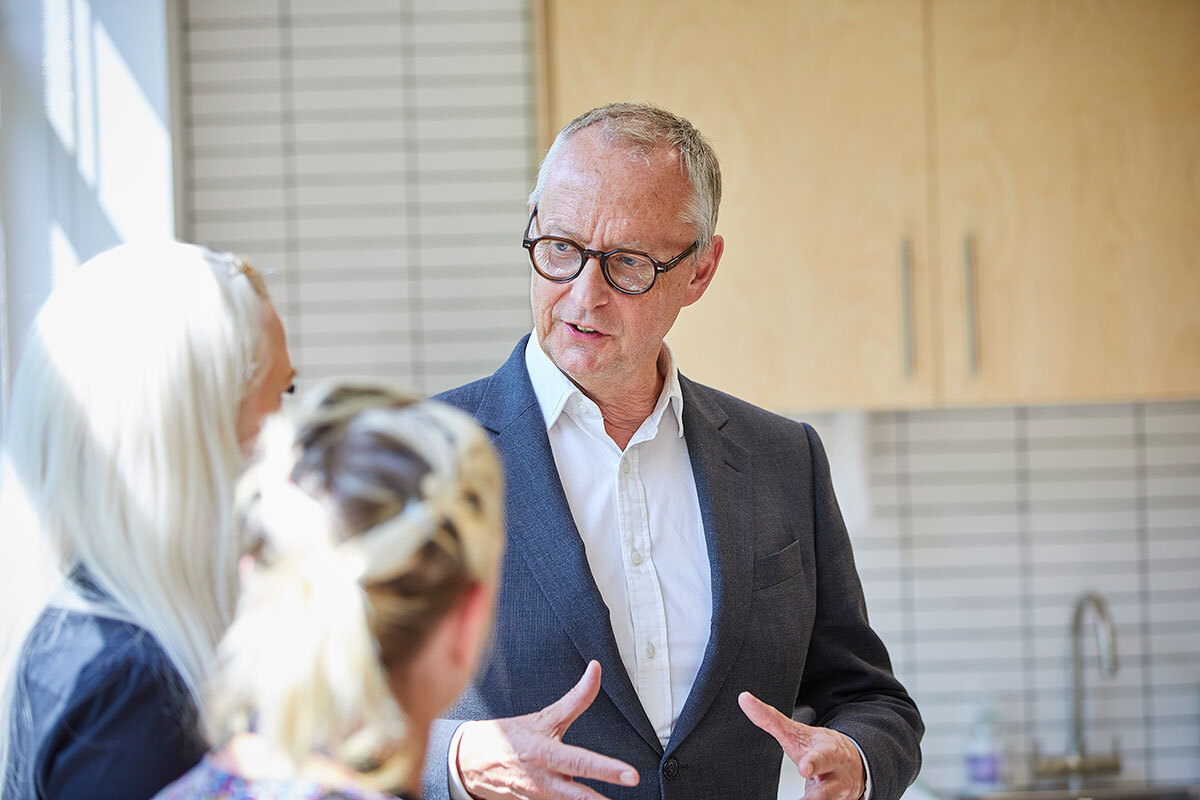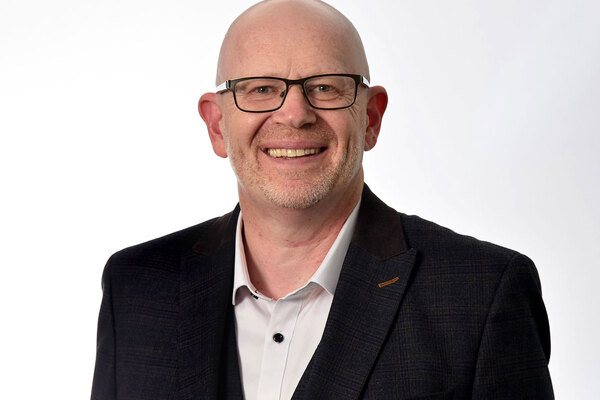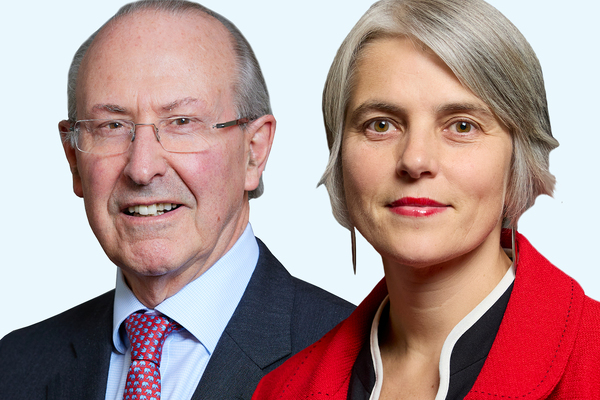Boss of newly merged SNG: ‘We will buck trend on development cutbacks’
Mark Washer, chief executive of recently merged Sovereign Network Group (SNG), tells James Riding why the housing association is increasing its development targets in challenging economic conditions
Mark Washer speaks to Inside Housing two months after 61,000-home Sovereign and 21,000-home Network Homes completed their tie-up to form SNG. The scale of the new organisation, he says, gives it strength as it navigates the challenging economic and political environment.
Nowhere is this clearer than development: the new organisation has revised its building target upwards post-merger to 25,000 homes over the next decade. This is 5,000 more homes than Sovereign and Network were individually planning to build.
“In the old days we used to do disaster planning for housing associations, knowing that perhaps one of the 10 potential extreme events that you were forecasting might happen,” says Mr Washer. Now, he warns: “They’re all coming together.”
Last year, the government confirmed that social rents in England would be capped at 7% from April next year. Although he supports this decision, Mr Washer, who was chief executive of Sovereign before the merger, states: “[The cap] has taken a massive chunk of capacity from us.”
The sector’s business model “that has kept it going, in terms of development and investment in existing homes and so on” over many years, is “starting to creak”. Meanwhile, “all of the statistics” around housing and homelessness are “moving in in the wrong direction”.
Mr Washer says that “there is a total lack of national housing strategy” from there government. There is not just a need for more funding but also reform of land value uplift, a bolder vision around planning and low-quality green belt sites, and the return of binding housing targets for local authorities.
“A lot of organisations are cutting back massively, in some cases, on their development,” he states. “We are able to buck the trend.”
One of the drivers for the merger was to de-risk development. “Network had development ambitions, but it was becoming increasingly difficult for it to build new homes at scale,” Mr Washer says.
With support from the Greater London Authority, Network delivered 497 affordable starts in 2022-23, up from 404 in 2021-22. “We would certainly, in the new group, expect to see London as a growth area.”
Another benefit of the merger is to think about risk in a different way, he says. “Where two organisations might have one large complex scheme each, perhaps coming together you can take on a third.”
In November, SNG announced a partnership with house builder Hill Group, which will initially focus on regenerating two mid-century estates in Basingstoke that originally belonged to Sovereign. The main aim of the partnership at this point is “to go out and talk to the communities to understand what we can do together”, explains Mr Washer.
“These are potentially multi-decade programmes.” He points out that the development of Elephant and Castle in south London is only now “coming to its conclusion” after the first plans were mooted “getting on for 30 years ago”.
Would a change of government next year bring some of the political leadership he desires? Mr Washer is “very positive” about the noises that are coming from the Labour shadow front bench, but adds: “We clearly need to understand what that means in practice.”
Housing is not seen by officials as an infrastructure project, he says: “The societal impact doesn’t count in the in the assessment, and I think that needs to change.” There will be a need to challenge the Treasury. “Does it make sense to have £15bn annually going to private landlords [on housing benefit], when just a small element of that could be invested in social rented homes,” asks Mr Washer.
Sovereign completed the second most homes for social rent last year according to Inside Housing’s Biggest Builders survey, and Mr Washer is “fully supportive” of the the Build Social campaign for more social rent homes.
He also speculates if Labour could explore alternative homeownership options such as Rent to Buy. While shared ownership has been “very successful”, Mr Washer says, it is “not the right tenure for everybody”, and ministers should be thinking about other routes into homeownership.
“It would be great for government to convene a wider cohort of organisations from different sectors. You need to include banks and mortgage lenders, and so on, in that,” he adds.
SNG assesses both its new and existing homes with an in-house home and place standard, which is based on criteria such as space, light and green credentials. Mr Washer is proud of the exacting nature of the assessment. “Over 70% of our homes meet EPC [Energy Performance Certificate Band] C, whereas only a little bit more than 20% of our homes meet our own home and place standard,” he explains.
The idea is to provide some “medium to long-term guide rails for where we should be focusing and what we should be doing”.
SNG’s first corporate plan, launched this week, also pledges to establish a community foundation that will work with private, public and charity organisations and invest £100m over 10 years.
A final opportunity Mr Washer is keen to pursue is town centre renewal. Since 2020, Sovereign has bought car showrooms and two shopping centres in Clifton Down, Bristol, and Farnborough, Hampshire. These sites are “absolutely right” for redevelopments which incorporate “not only retail but also residential”, he states.
“We haven’t quite had to become experts in shopping centre management, because there are some very good people who we pay to do that… We have patient capital; we don’t need to make a quick return on those activities.”
One option might be to create housing for older people in these town centre locations, he suggests.
For now, Mr Washer’s biggest challenge is to continue SNG’s integration, but he says there is great positivity among the new leadership.
“Our teams don’t operate in a vacuum. They’re all incredibly aware of the headwinds that are coming at us. Indeed, the risks that were risks a year or two years ago, are no longer risks, because they have crystallised,” he says.
“People really did understand the vision for the merger and see it as a massive positive.”
Sign up for our development and finance newsletter
Already have an account? Click here to manage your newsletters












